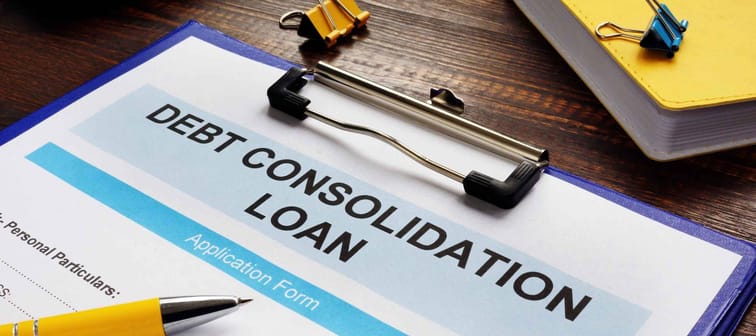What is a debt settlement program?
Simply put, a debt settlement program is one strategy for handling outstanding debt. Like a consumer proposal (which we will touch on below), debt consolidation, credit counselling, and even bankruptcy, it’s legitimate and legal. In debt settlement, debtors hire experts from debt settlement companies to negotiate on their behalf with their creditors. The idea is that a successful negotiation will satisfy both parties: the indebted will pay off part of their debt, but will save on interest fees and perhaps even their principal balance; creditors will reclaim at least part of what is owed to them, which from their perspective might be preferable to a prolonged legal battle in pursuit of reclaiming the entire amount owed.
How does the process work in Canada?
Debt settlement is simple to understand. Let’s imagine an average Canadian—we’ll call him Dave. Dave used his credit card to buy a wicked new multi-screen, surround sound gaming setup for his rec room. But then his hours were unexpectedly cut back, and he was unable to pay off his card. The interest quickly compounded and ultimately Dave found himself in arrears with his credit card company. Though his debt is only medium-sized, he can’t get ahead of the interest—and he’s stressed out by his credit card company’s repeated letters and phone calls. Dave decides to go to a debt settlement company, where his debt settlement takes the following course:
Consultation
The very first step is a free consultation to review Dave’s financial picture. The representative will look at Dave’s savings, income, and debt, and will advise on whether debt settlement is the best course of action. The representative will consider:
- How much debt is outstanding? In general, debt settlement is for those carrying more than $10,000 in debt. For those with less debt, consumer credit counselling, a low-interest consolidation loan, or a low-interest balance transfer credit card may be more cost-effective ways to get out of debt.
- What kind of debt is it? Only unsecured debt like credit cards or consumer loans are eligible for debt settlement programs. This is not the place to handle mortgage payments or student loans.
- Debt repayment: how much and how fast? In order to qualify, Dave will have to demonstrate that he’s solvent—that is, with his accumulated savings and income he can make the monthly payment agreed upon with his creditors. Further, there is the expectation that he will be able to pay down his debt within a time frame of three years, more or less. If these are unreasonable goals, Dave may not qualify for a debt settlement program and he will be presented with other options like debt consolidation or bankruptcy.
Negotiation
If Dave qualifies, he can then enrol in a debt settlement program. At this point he will negotiate a contract with the debt settlement company, including the fees for the program and repayment time frames. Once a contract is signed, the company will enter into a negotiation with his creditors. While there’s no law against individual Canadians trying to negotiate with their creditors, they are likely to receive only a small break on their interest payments and none on the principal. (It is worth mentioning that this might be a good preliminary strategy—even a small reduction can help.) Debt settlement representatives are experts in the field and have built positive relationships with many creditors. They are more likely to get a good deal on Dave’s behalf than Dave—the delinquent debtor—will for himself.
Payment
Concurrent with the company’s negotiations, Dave must pay into a special account. The idea is to build up a debt settlement fund—a lump sum of money to be handed over to the creditors if and when a deal is struck. Dave no longer deals with his creditors directly. If a settlement is reached, the debt settlement company pays the creditors from Dave’s account and the debt is marked as paid.
Is it right for you?
If you’ve ever been on the business end of a late notice or creditor phone call, you’ve definitely felt the stress and anxiety of looming debt. A program designed to reduce what you owe and help you pay off your creditors may seem like music to your ears, but a debt settlement program is not right for everyone. Before going any further, consider the following:
- Debt settlement negatively affects your credit score. While you are in negotiation, you may be advised to stop paying your debt entirely, a strategy designed to make your creditors worried about recovering their money. This might be an effective bargaining tactic, but only in a mutually-assured-destruction kind of way. Your credit score unfortunately doesn’t care why you’ve stopped paying, and tanking it may cause you to lose out on housing, jobs, and any credit products for years to come.
- Debt settlement programs aren’t free. The companies charge fees and they aren’t insignificant. The cost will depend on the amount of debt you’re looking to settle, the length of time you’re investing in the program, and your province of residence. In any case, you will incur fees on an upfront or monthly basis, and these are not typically refunded if the company fails to reach a settlement.
- No guarantee of result. Debt settlement companies do not guarantee their work, and they cannot compel a creditor to accept an offer. This means that you could potentially hurt your credit score, pay out substantial fees, and still have a pile of outstanding debt at the end of all that trauma.
What to look for in a debt settlement company
If, after your research, you still feel like debt settlement is your best option, here’s what you need to watch out for:
Unrealistic promises
If you’re drowning in debt you are vulnerable. Remember that debt settlement companies cannot promise any of the following:
- To reduce your debt by a certain percentage
- Legal protection from creditors
- To stop creditors from calling or mailing you
- To prevent wage garnishing
- To make your creditors agree to a settlement
High-pressure sales
Your debt settlement strategy should be planned and carried out with a clear head and trustworthy partners. The last thing you need is to be convinced to enter into an agreement that doesn’t work for you—or worse yet, that you didn’t have the chance to read! If a debt settlement representative tries to pressure you into a decision, it’s probably a good idea to keep looking.
High fees
Do your research and make sure you are getting the best possible rates. While debt settlement in Canada is legal, it is a for-profit business and should be treated as such. Check prospective programs against the Better Business Bureau and your provincial or territorial consumer affairs office.
What is the difference between a debt settlement program and a consumer proposal?
If you’ve been researching debt repayment options in Canada, you’ve likely come across the consumer proposal. A consumer proposal is a legally binding agreement, brokered by an intermediary, between a debtor and their creditors. Sound familiar? It’s true that there are similarities between debt settlement and a consumer proposal but there are also some important differences. Before making a decision about which (if either) is right for you, you’ll want to understand exactly what a consumer proposal is and how it works. In the meantime, here are the highlights.
Similarities:
- In both a debt settlement program and a consumer proposal, the debtor works with an intermediary to try and negotiate a repayment program.
- Unsecured debt can be included in a debt settlement program or a consumer proposal.
- In both cases, the debtor pays the intermediary, who then pays the creditors.
Differences:
- When a debtor uses a settlement company, they work with that company’s representative. If they use a consumer proposal, they work with a Consumer Proposal administrator, who is also a Licensed Insolvency Trustee (LIT).
- The consumer proposal was created by the Canadian government as an alternative to filing for bankruptcy. Debt settlement, on the other hand, is a private enterprise.
- As a governmentally recognized program, the consumer proposal is empowered to grant you certain protections not available by debt settlement programs: it might protect your assets and put an end to creditor phone calls.
If your debt load has gotten out of control, there are many options to explore. In addition to a consumer proposal, you might consider credit counselling, debt consolidation, consumer proposal loans, or bankruptcy. Like all of these, debt settlement is a legal and legitimate course of action. It does, however, have serious drawbacks including a negative impact on your credit score and the addition of another expense to your budget. Certain other financial products, like a consumer proposal loan, will help you rebuild your credit score quicker and make you financially whole again sooner. If you do decide to go forward with a debt settlement company, be aware of the risks and make sure to clear the company with a consumer rights organization.






